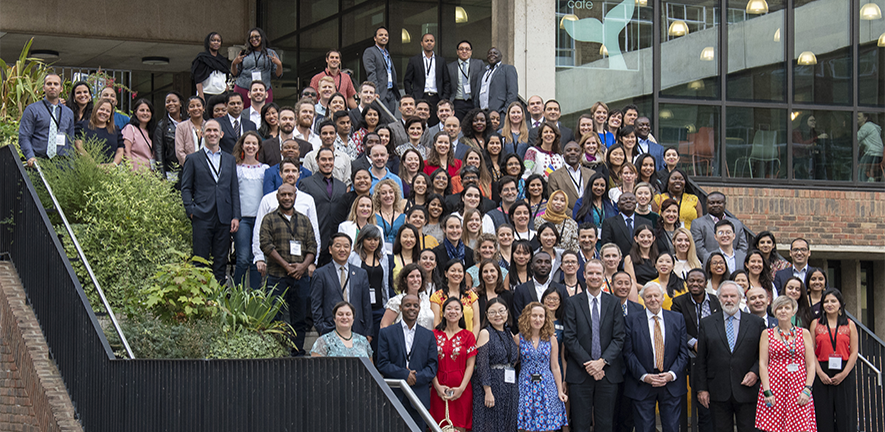
Submitted by S. Bolderson on Wed, 11/03/2020 - 11:20
Responding to the recently released draft plan to save nature by the United Nations Convention on Biological Diversity, over 100 alumni from over 60 countries ask their collective nations to act decisively to tackle the root causes of accelerating species extinctions.
Governments must explicitly acknowledge the biodiversity crisis and climate emergency, act now, and establish mechanisms for greater accountability says the University of Cambridge Conservation Leadership Alumni Network (UCCLAN). The network calls on governments to show bold leadership at every level to tackle these global issues collectively.
The UCCLAN argues that the root causes of the crisis, such as limitless consumption and production, must be urgently addressed in the draft UN plan through concrete actions. To ensure sustainable practices and reverse environmental degradation, the network recommends redefining economic growth on a finite planet and restructuring governmental systems, including taxes, subsidies, and regulations. This transition must be just and equitable, valuing the rights and well-being of both humans and nature at its core.
In its comprehensive response to the draft plan to save nature, the UCCLAN emphasises the need for governments to recognise nature’s right to exist and urges governments to embed the new plan, once adopted, into their national core legal frameworks. They propose making Ecocide an international law to create the legal duty to care for all life on earth that is at risk of being harmed due to ecosystem destruction.
Aylin McNamara, alumna from the United Kingdom, says, ”Humanity is failing to protect the very earth it relies on for its long term survival. We need our governments to step up to protect nature and halt biodiversity loss and the climate change crisis before it is too late”.
The alumni also focus on leadership as critical for addressing the crisis. Stephen Awoyemi, alumnus from Nigeria, says, “Leadership is the core basis of organizational and societal success anywhere in the world. Leaders navigate the ship and for this reason must have the requisite skills and knowledge to sail home our goals and vision for a new and sustainable world.“
In addition, the UCCLAN points to accountability mechanisms through transparency, better communication, inclusive processes, and milestones for enhancing rapid, long-lasting progress and impact. The group suggests 11 milestones, which are to be completed by 2030 to stop the extinctions crisis.
Nobesuthu Ngwenya, alumna from Zimbabwe, says, “The implementation of conservation goals relies on stakeholders working together, owning the global biodiversity framework, sharing information, building capacity and mainstreaming biodiversity conservation in their work.”
According to the UCCLAN the negotiations on the plan to save nature must include the necessary ambition to tackle these root causes. “There’s no time to wait. Nations must act decisively, urgently, and in coordination with one another to make the changes necessary to protect global biodiversity. These changes must reflect the root causes of biodiversity loss — economic and social systems that stand in the way of progress for people and nature towards achieving a sustainable future,” says Rosalind Helfand, alumna from the United States.
Paola Espinosa, alumna from Ecuador, says “We understand human population dynamics role in biodiversity loss, but recognise these dynamics are driven by social, economic, and ecological injustice. Wealthy nations must transition to sustainable production and consumption patterns to halt biodiversity loss and reduce global inequality.”
University of Cambridge Conservation Leadership Alumni Network (UCCLAN): The UCCLAN is a network for alumni of the University of Cambridge Conservation Leadership Master of Philosophy. It aims to deliver a world-class interdisciplinary education delivered in partnership by leading conservation practitioners and researchers. The UCCLAN strengthens the alumni’s collective impact through participation in international meetings and debates regarding conservation of biodiversity and ecosystems.
The course was created in 2007 by eight internationally renowned conservation organizations, the Cambridge Conservation Forum (CCF), and the university, now known collectively as the Cambridge Conservation Initiative (CCI).
Contact:
UCCLAN Council Interim Chair: Shelley Bolderson, sr445@cam.ac.uk,+44 -1223-766567
Conservation Leadership Director: Chris Sandbrook, cgsandbrook@gmail.com
